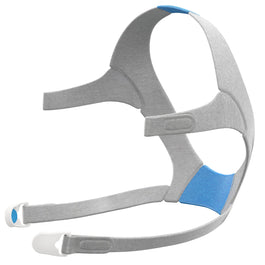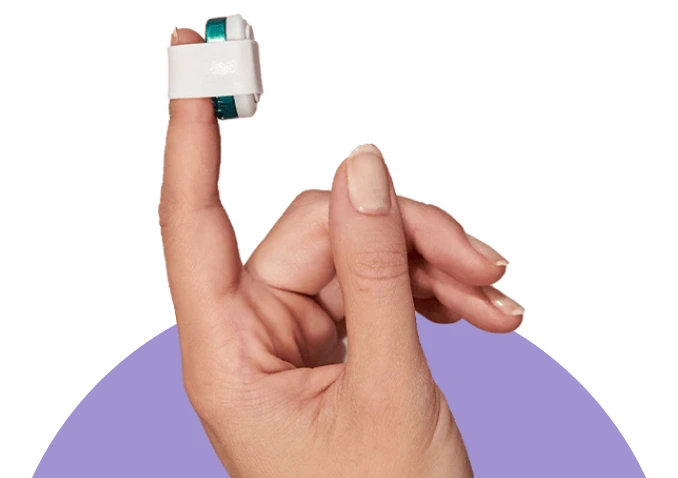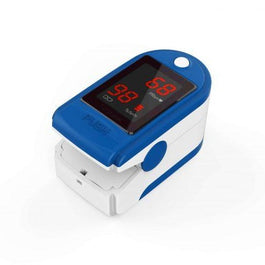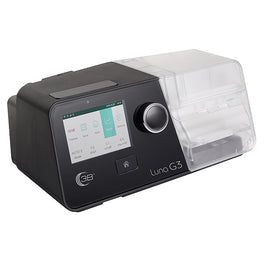It’s 2:45 am, and again, here you are, waking up in the middle of the night, struggling to fall back asleep.
Treatment Comparison Table
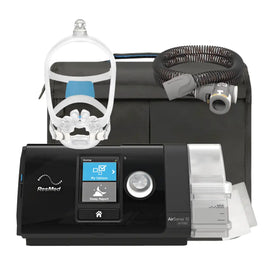
AirSense 10 AutoSet Bundle AirFit X30i Full Face CPAP Mask
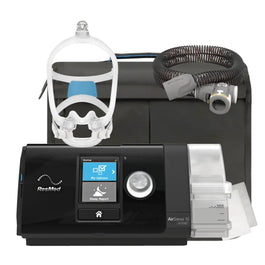
AirSense 10 AutoSet Bundle with AirFit F30i Full Face CPAP Mask
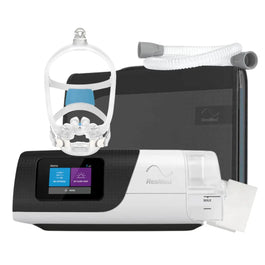
AirSense 11 AutoSet Bundle AirFit X30i Full Face CPAP Mask
Mechanism
Mechanism
Electrical stimulation of tongue muscle
Mechanism
Electrical stimulation of tongue muscle
Mechanism
Electrical stimulation of tongue muscle
Some
Electrical stimulation of tongue
ffff
Electrical stimulation of
Anyone who’s experienced this uncomfortable, sleep-robbing problem knows how frustrating it is to be unable to fall back asleep.
Keep in mind it's normal to do it once or so each night, but when tossing and turning becomes frequent, it can affect your mood, mental agility, and overall health.
To help, we’ve curated a list of tried-and-true strategies from top sleep experts to help you easily reclaim your nights and fall back asleep.
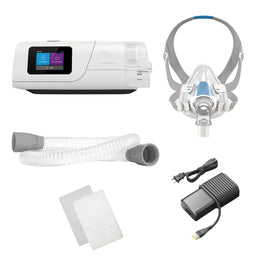
AirCurve 11 VAuto BiPAP Bundle with AirFit F20 & Filters
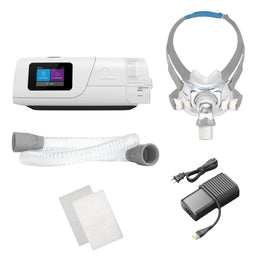
AirCurve 11 VAuto BiPAP Bundle with AirFit F30 & Filters
8 Tips to Help You Fall Back Asleep
1. Don’t look at the clock
Starring at the clock will not help you fall back asleep; instead, it will generate more anxiety and stress . At the same time, the blue light of your phone or the brightness of a clock can also disturb your circadian rhythm and prevent you from falling back asleep.
It would be even better to keep your phone away from the nightstand and avoid having a clock in the room. For those who must have their phones nearby, dim the lights or use sleep/do not disturb mode to avoid flashing lights due to notifications.
2. Try a breathing exercise
Slow, deep breathing can help you fall back asleep by activating the parasympathetic nervous system, which is involved in relaxation and sleep . Here’s an easy breathing exercise you can try:
- 4-7-8 breathing
- Inhale for 4 seconds
- Hold your breath for a count of 7 seconds
- Exhale long and slow for 8 seconds
- Repeat
3. Relax your body
Did you know we hold a lot of tension in the body? Even in body parts like your jaw, calves, and neck. Bring awareness to your body to release any backed-up tension. Start by scanning from toes to head, tense and release your feet, calves, and thighs, and work your way up. This progressive muscle relaxation technique systematically helps you release tension from each muscle group. Disclaimer: it feels great!
4. Listen to a sleep meditation
Distract your busy mind with a guided sleep meditation to help you fall back asleep. While you can practice sleep meditation on your own, guided practice usually means listening to an audio recording that directs you through the steps of the guided sleep meditation. To help you drift off, soothing voices help guide you to a relaxing state.
5. Get out of bed
Instead of tossing and turning, sleep specialists recommend getting out of bed for a few minutes (while still not looking at the clock or checking your phone). Then, consider sitting on the couch and practicing breathwork and meditation before returning to bed.
6. Take a warm bath
A warm bath or shower may help change your body temperature as you return to a cool room, helping you feel relaxed and sleepy again. While in the shower, focus on enjoying the warm water rather than actively massaging your head with shampoo.
7. Practice visualization techniques
The more you focus on falling back asleep, the harder it becomes. Instead, distract your mind with your favorite relaxing scenes, such as a beautiful sunset or a mountaintop view.
8. Get comfortable
Empty your bladder, make sure the room temperature is cool, turn your pillows to the cool side, and close the blinds. Your sleep environment affects your comfort level and can help promote better sleep.
Why Are You Waking Up in the Middle of the Night?
The occasional night of disrupted sleep is normal. We all face changes in sleep schedules due to stress, small children, or simply a bad night’s rest. But when it becomes too common, consider addressing the root cause of your sleep issues or insomnia . There can be multiple factors affecting your sleep, including:
Sleep Apnea
Obstructive sleep apnea can cause insomnia. Sleep apnea can cause sleep disturbances and may cause people to wake up. If you’re experiencing sleep apnea symptoms such as snoring, choking or gasping for air in the middle of the night, daytime sleepiness, or difficulty concentrating, you might consider taking a home sleep test to diagnose sleep apnea. Our home sleep test is a minimal device that can detect sleep apnea in just one night, all while you sleep in the comfort of your bed. Sleeplay’s home sleep test is delivered fast and helps you get on the path to better sleep.

Poor Sleep Hygiene
Sleep hygiene are all the habits you adopt to optimize your sleep and that help you get proper rest. Sleep hygiene habits include setting the right sleep environment, preparing yourself mentally and physically for sleep, and even strategies to practice and avoid during the day.
Medications
Certain medications, including some over-the-counter drugs, prescription medications, or even herbal supplements, may interfere with your sleep. If you suspect that your medications are impacting your sleep, consult your healthcare provider to discuss potential alternatives or adjustments to your dosage or timing.
Too much caffeine
Stimulants, such as those found in caffeine or certain asthma medications can impact your sleep. If you drink coffee, try ingesting no later than 12 pm to avoid feeling jittery at bedtime.
Working out too close to bedtime
For some people, intense physical activity before bedtime can affect their sleep. If you’re a night owl and the gym, consider pushing your work out a few hours earlier and see if that helps.
Uncomfortable mattress or pillow
The quality of your mattress and pillows can play a significant role in your sleep quality. Investing in a comfortable mattress and pillow can greatly improve your sleep quality.
Stress
Stress anxiety or depression can disrupt your sleep and exacerbate your condition even further. Addressing these concerns with your health care provider and taking proactive steps to manage your symptoms can set you in the right direction. Easier said than done, but if you take measures one step at a time, you’ll be closer to your goal each day.
Inconsistent sleep schedule
Whether due to lifestyle or shift work, inconsistent sleep schedules can contribute to waking up in the middle of the night and difficulty sleeping. Consider adopting a consistent bedtime schedule and manage other lifestyle factors such as alcohol and caffeine consumption.
When to ask for help
If your sleep disruption is becoming frequent and you’ve tried all these suggestions, talk to your doctor or sleep specialist to help you find the root of the problem. If you suspect you have sleep apnea and its causing you to repeatedly wake up in the middle of the night, take a home sleep test. It’s the fastest, most comfortable way to accurately get diagnosed for sleep apnea and start sleeping better.
If you need help, don’t hesitate to reach out, our team is here to support you!

















































